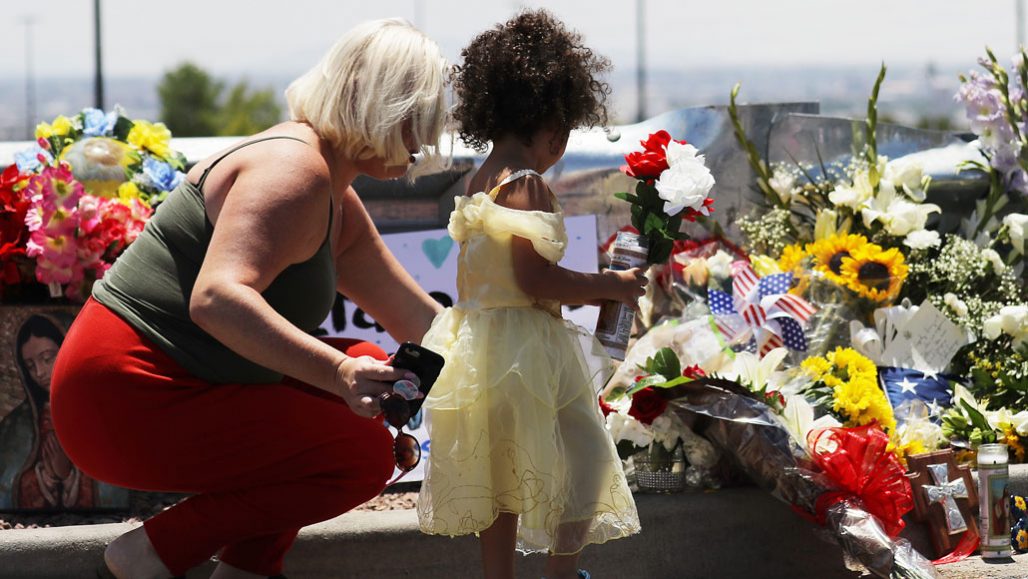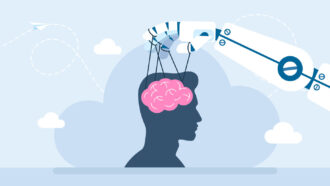adolescence A transitional stage of physical and psychological development that begins at the onset of puberty, typically between the ages of 11 and 13, and ends with adulthood.
adolescent Someone in that transitional stage of physical and psychological development that begins at the onset of puberty, typically between the ages of 11 and 13, and ends with adulthood.
anxiety A nervous reaction to events causing excessive uneasiness and apprehension. People with anxiety may even develop panic attacks.
behavior The way something, often a person or other organism, acts towards others, or conducts itself.
colleague Someone who works with another; a co-worker or team member.
depression A low spot, such as in a field or the surface of a rock. (in medicine) A mental illness characterized by persistent sadness and apathy. Although these feelings can be triggered by events, such as the death of a loved one or the move to a new city, that isn’t typically considered an “illness” — unless the symptoms are prolonged and harm an individual’s ability to perform normal daily tasks (such as working, sleeping or interacting with others). People suffering from depression often feel they lack the energy needed to get anything done. They may have difficulty concentrating on things or showing an interest in normal events. Many times, these feelings seem to be triggered by nothing; they can appear out of nowhere.
development (in biology) The growth of an organism from conception through adulthood, often undergoing changes in chemistry, size and sometimes even shape.
diabetes A metabolic disease where the body either makes too little of the hormone insulin (known as type 1 disease) or ignores the presence of too much insulin when it is present (known as type 2 diabetes).
fight-or-flight response The body’s response to a threat, either real or imagined. During the fight-or-flight response, digestion shuts down as the body prepares to deal with the threat (fight) or to run away from it (flight).
mental health A term for someone’s emotional, psychological and social well-being. It refers to how people behave on their own and how they interact with others. It includes how people make choices, handle stress and manage fear or anxiety. Poor mental health can be triggered by disease or merely reflect a short-term response to life’s challenges. It can occur in people of any age, from babies to the elderly.
pediatrician A doctor who works in the field of medicine that has to do with children and especially child health.
pediatrics A field of medicine that has to do with children and especially child health. A doctor who works in this field is known as a pediatrician.
physical (adj.) A term for things that exist in the real world, as opposed to in memories or the imagination. It can also refer to properties of materials that are due to their size and non-chemical interactions (such as when one block slams with force into another).
policies Plans, stated guidelines or agreed-upon rules of action to apply in certain specific circumstances. For instance, a school could have a policy on when to permit snow days or how many excused absences it would allow a student in a given year.
risk The chance or mathematical likelihood that some bad thing might happen. For instance, exposure to radiation poses a risk of cancer. Or the hazard — or peril — itself. (For instance: Among cancer risks that the people faced were radiation and drinking water tainted with arsenic.)
stress (in biology) A factor — such as unusual temperatures, movements, moisture or pollution — that affects the health of a species or ecosystem. (in psychology) A mental, physical, emotional or behavioral reaction to an event or circumstance (stressor) that disturbs a person or animal’s usual state of being or places increased demands on a person or animal; psychological stress can be either positive or negative.
symptom A physical or mental indicator generally regarded to be characteristic of a disease. Sometimes a single symptom — especially a general one, such as fever or pain — can be a sign of any of many different types of injury or disease.
Texas The second largest state in the United States, located along the southern border with Mexico. It is about 1,270 kilometers (790 miles) long and covers an area of 696,000 square kilometers (268,581 square miles).
toxic Poisonous or able to harm or kill cells, tissues or whole organisms. The measure of risk posed by such a poison is its toxicity.
vigilant (n. vigilance) The act of being intensely observant and careful.








